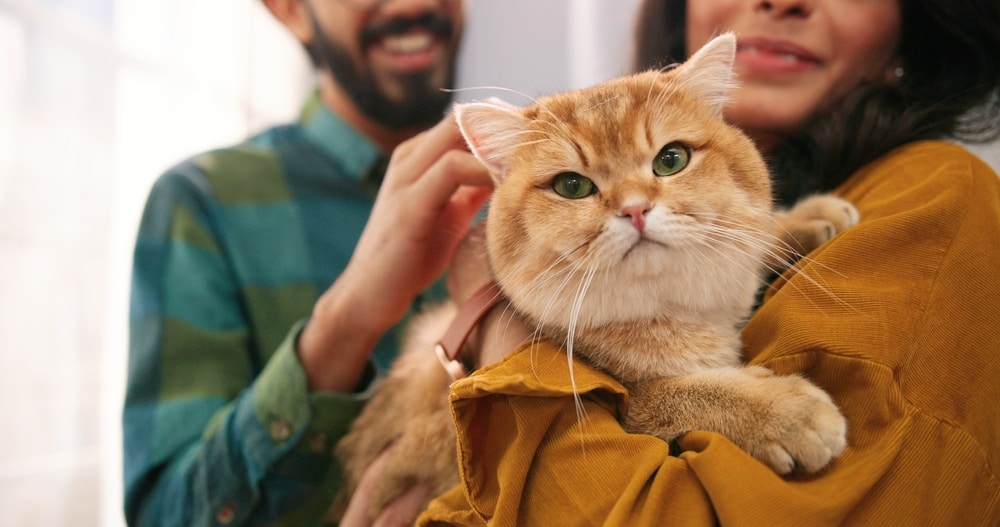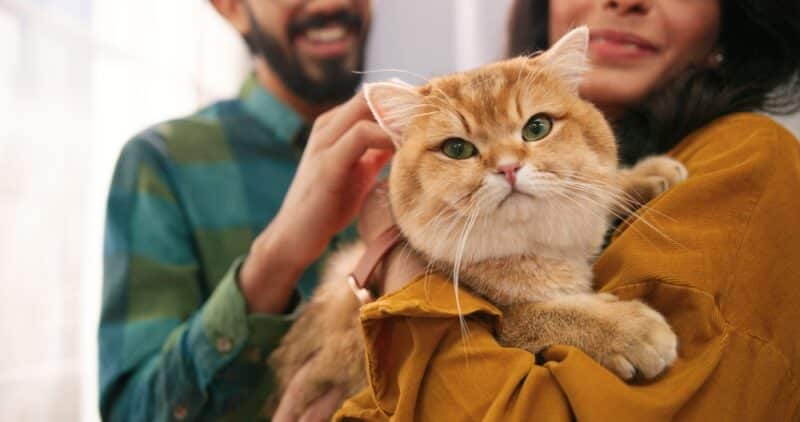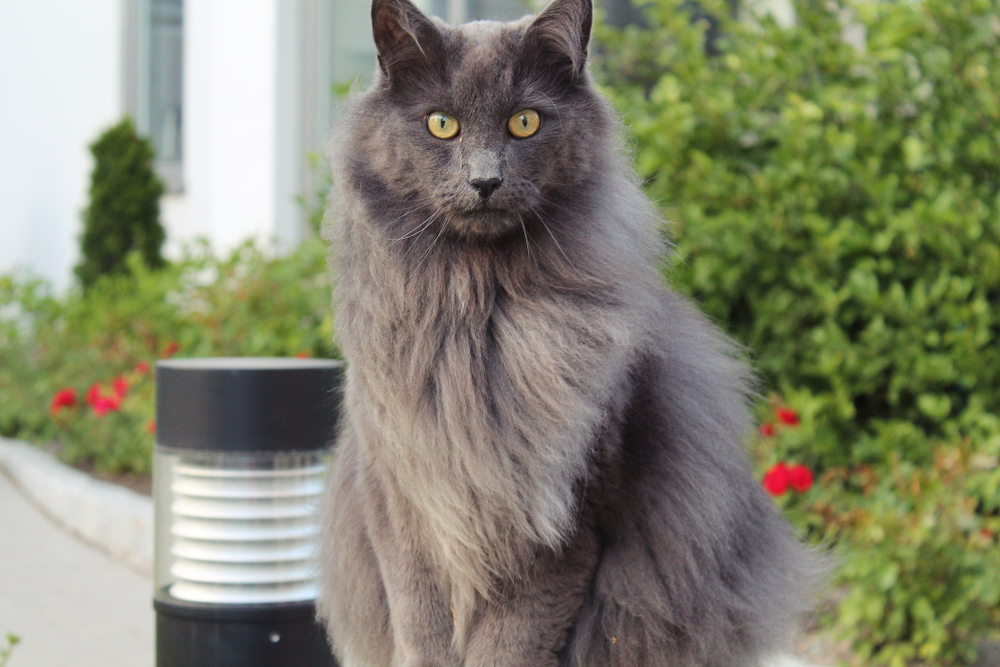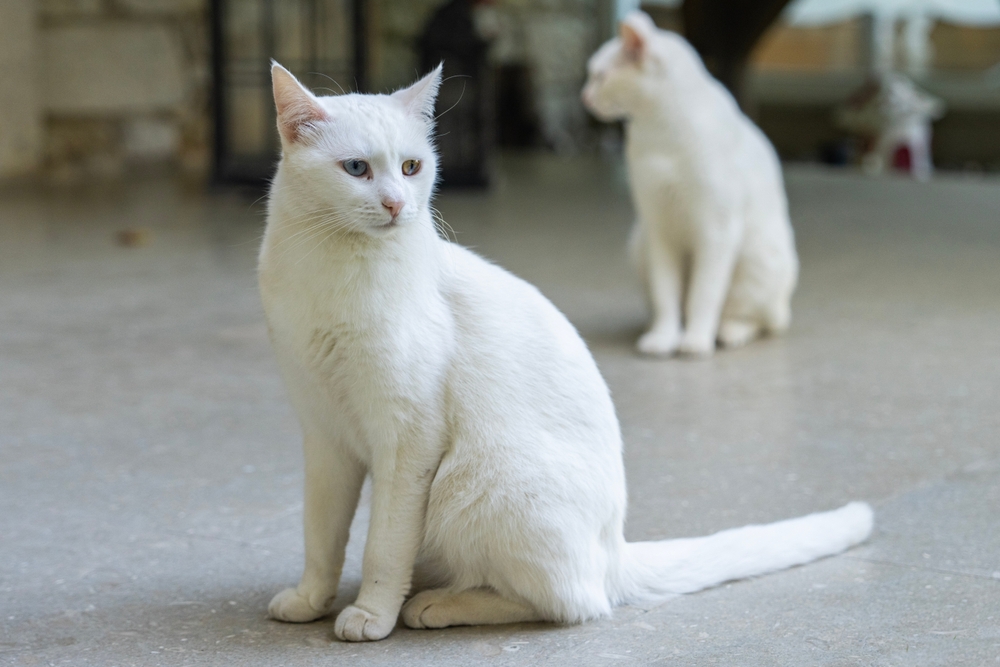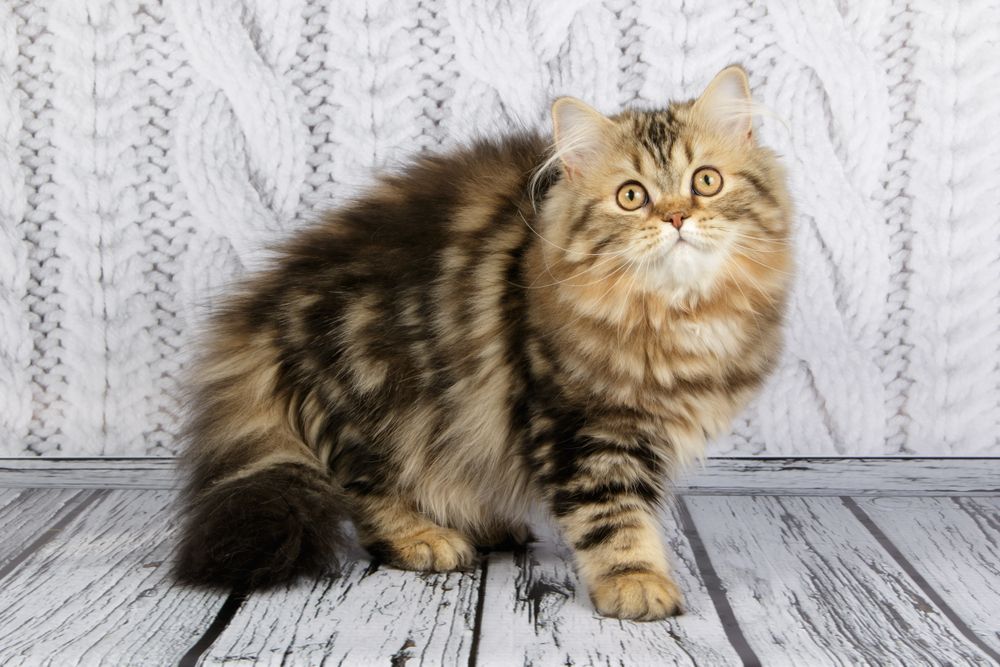Traditionally, cat ownership wasn’t that popular in India. Plenty of street cats hung out in the alleys, but they typically fended for themselves, with little human interaction. But while there are many such cats still lingering on the streets today, pet ownership in India is on the rise, with 20% of pet owners having at least one cat1. Many pet cats may be former street cats with an uncertain heritage, but some are purebred felines like a Siamese or Maine Coon.
Here are the most popular cat breeds in India today that you might see in your travels!
Cat Ownership in India
In 2023, an estimated 2.44 million cats lived in homes in India2. This number has doubled in the last decade, up from 1.21 million in 2014. The data speaks for itself: Cat ownership is becoming increasingly popular in the country. Many of these cats may have been adopted during the COVID-19 pandemic, as pet adoption rates experienced an international surge because people were confined to their homes and needed companions. A large number of those pets were unfortunately rehomed once normal life resumed, but cat ownership is still on the rise, even after accounting for the loss.

The 8 Most Popular Cat Breeds in India
1. Billi (Billy)
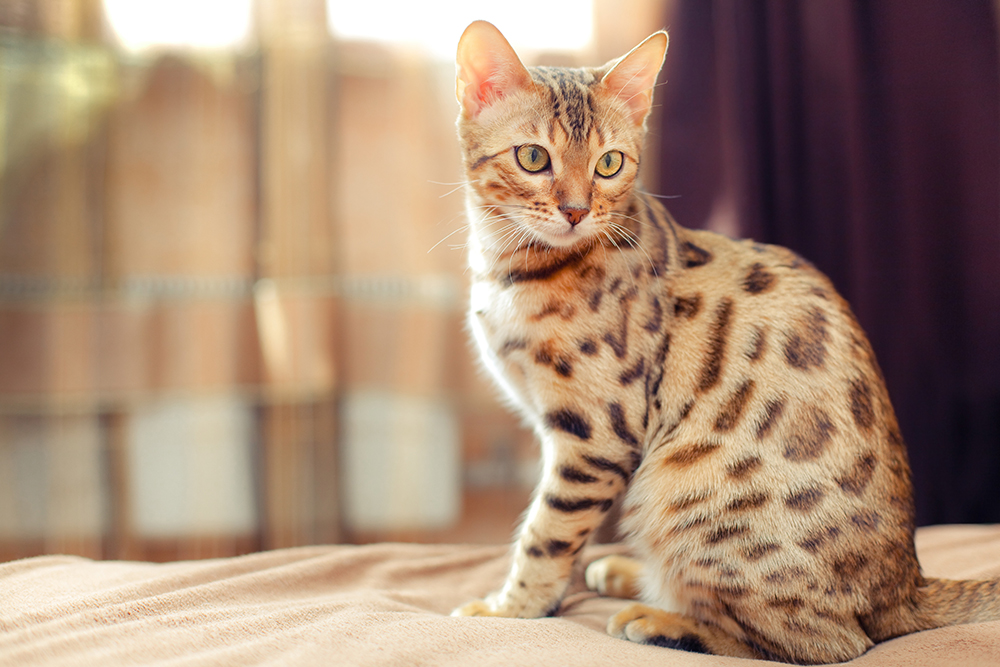
| Origin: | India |
| Lifespan: | 2–18 years |
| Weight: | 8–15 pounds |
Native to India, the Billi cat usually lives on the street and isn’t regarded as a special breed. Cat fanciers in India are looking to change that in hopes that an international breed status may increase adoption rates and reduce the numbers on the streets3. On their own, they typically live between 2 and 10 years, but an indoor Billi kept as a pet may live 15–18 years, like the average domestic housecat. Forming a breed standard may prove a bit challenging since the most defining characteristics of a Billi cat are their large size and muscular body, not so much their patterns and colors. The most common colors are rust or gray with spots.
2. Siamese
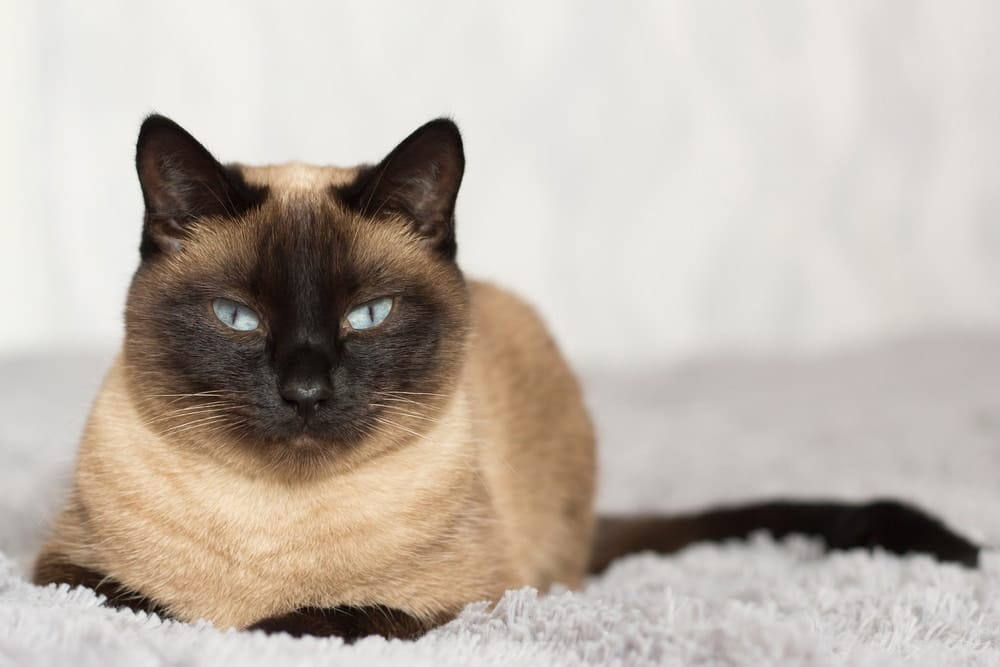
| Origin: | Thailand |
| Lifespan: | 8–15 years |
| Weight: | 8–14 pounds |
Usually having a light-colored coat with black or brown seal points on their face and paws, the Siamese has a distinct appearance that’s adored around the world. So, it’s no surprise that they would be one of the most popular cats in India too. Siamese kittens are always born pure white. They start to grow their darker fur around the time they’re 1 month old. This is considered to be a small- to medium-sized cat that averages around 8–14 pounds when fully grown. Siamese cats like to “talk” and are very playful. Some have a mischievous streak, as depicted in popular movies.
3. Persian
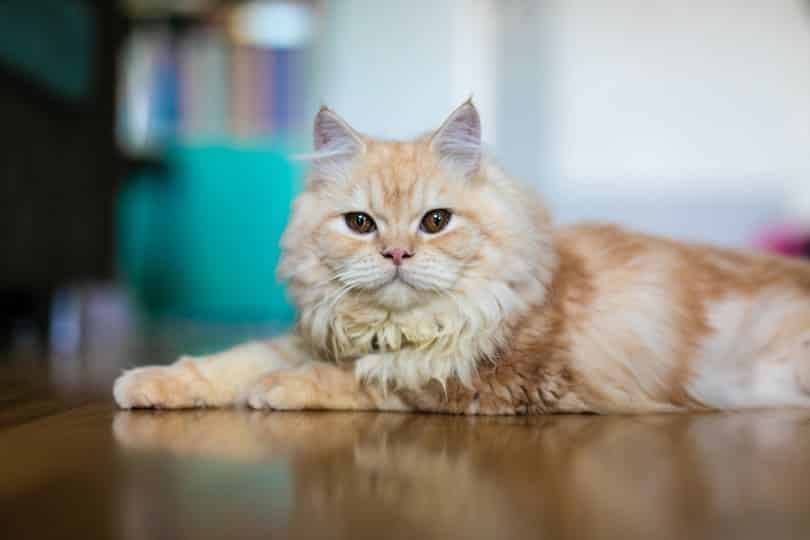
| Origin: | Iran |
| Lifespan: | 15–20 years |
| Weight: | 7–12 pounds |
An ancient breed originating from Persia, or modern-day Iran, the Persian cat is known for their fluffy double coat and compact features. The long coat may be of a variety of colors and requires a lot of brushing in order to catch all of the loose fur. The Persian may not greet you as soon as you walk in the door but is likely to become very affectionate once they get to know you better.
4. Himalayan
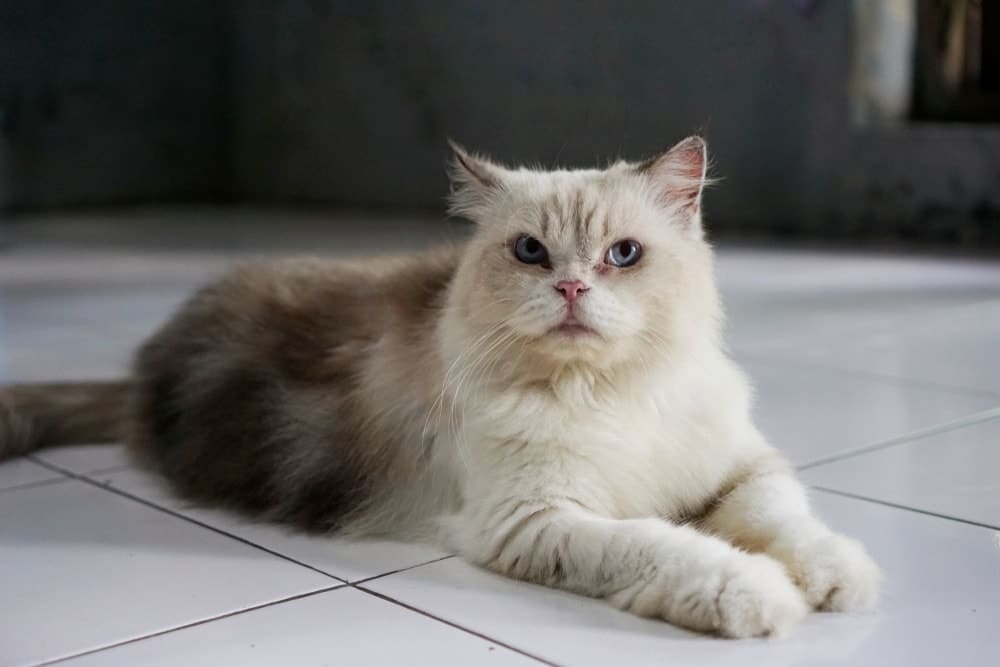
| Origin: | United States of America |
| Lifespan: | 9–15 years |
| Weight: | 7–12 pounds |
With seal points and compact features, the Himalayan is the adorable mix of a Persian and Siamese cat. They typically have the stocky legs of the Persian and the white body and blue eyes of the Siamese, though not always. Himalayan cats may have different colored fur inherited from the Persian parent.
The Himalayan is a very popular cat breed, despite their recent American origins and not being as widely available in India. But given that the parent breeds are among the most popular purebreds in India, it makes sense that they are so readily adopted.
5. Bengal
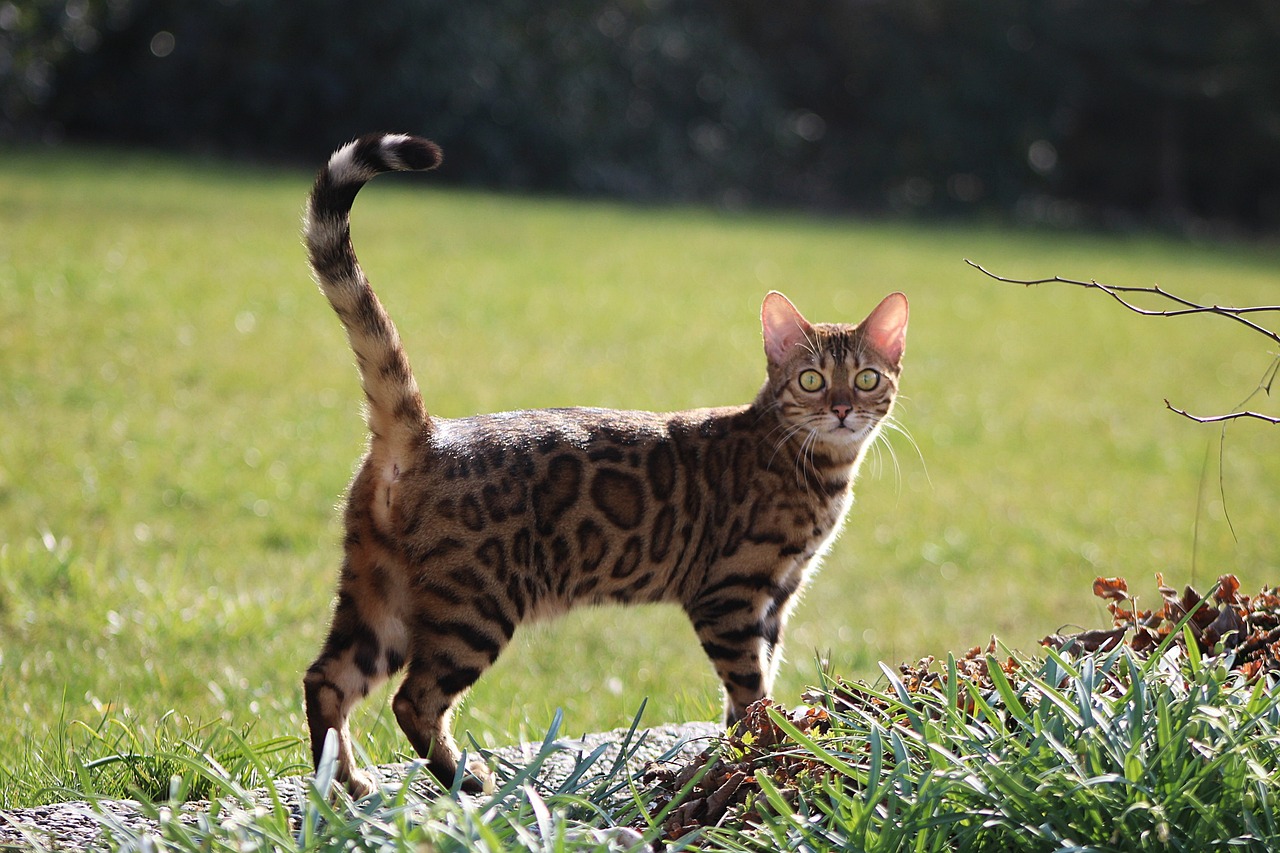
| Origin: | United States of America |
| Lifespan: | 12–16 years |
| Weight: | 8–15 pounds |
Imagine a miniature leopard sitting on your sofa, and you’ve got a pretty accurate picture of the spotted Bengal—except that they probably won’t sit still for very long. The athletic Bengal is one of the few cat breeds that actually likes to swim. They likely inherited this trait from their recent ancestor, the Asian Leopard Cat, which lives in different places on the same continent, including the coastal regions of India. Despite their exotic name, the Bengal breed was created in the United States by mixing different domestic breeds with the Asian Leopard Cat to produce a wild-looking house cat.
6. Bombay
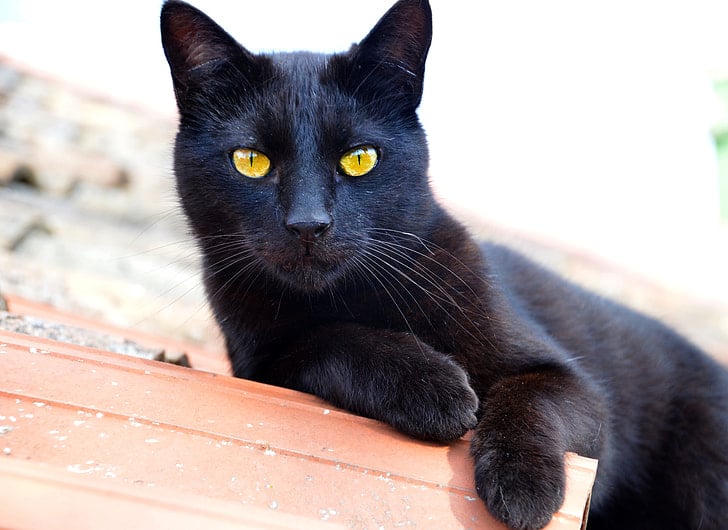
| Origin: | United States of America |
| Lifespan: | 12–20 years |
| Weight: | 8–15 pounds |
A beautiful mix between the Burmese and the American Shorthair, the Bombay cat has jet-black fur that’s soft to the touch. Their olive eyes and round head, coupled with their dark fur, make them resemble the wild black leopard found in India around Mumbai (formerly Bombay), but they don’t technically have any wildcat blood in them. The Bombay cat is an extremely social breed. They can easily make friends with humans, other cats, and dogs as long as they’ve been accustomed to them from an early age.
7. Maine Coon
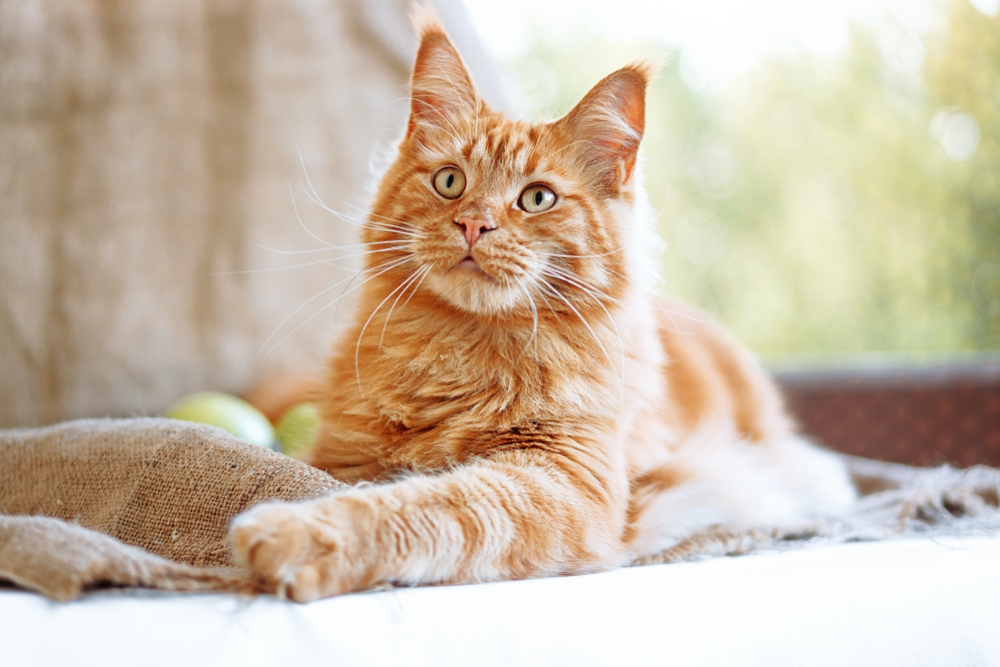
| Origin: | United States of America |
| Lifespan: | 12–17 years |
| Weight: | 15–20 pounds |
If you’re torn between adopting a dog or a cat, the Maine Coon is likely the best choice for you. Their large size, love of water, and ability to walk on a leash enable them to go on almost any adventure with you. The Maine Coon was developed in the United States during the 1800s. They caught rats on ships that docked on the shores of Maine and worked as barn cats in rural America, but today, they are one of the most popular cat breeds in India and other countries.
8. American Bobtail
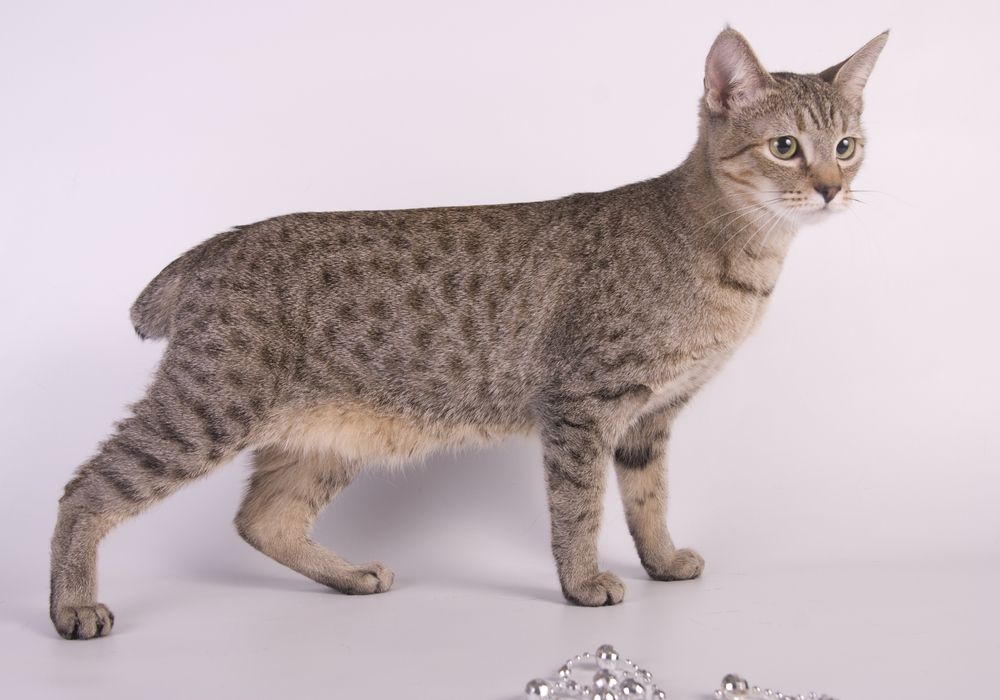
| Origin: | United States of America |
| Lifespan: | 13–18 years |
| Weight: | 7–16 pounds |
American Bobtail cats have a naturally occurring gene that produces a stubby tail. While this type of cat has always existed, the breed wasn’t officially formed until the 1950s, when they were strategically bred in the United States. Their short tail and friendly nature define them. Unlike most breeds, their coat is incredibly varied and can be pretty much any color or length. You can expect to pay a pretty penny to adopt one of these beautiful felines in India unless you’re lucky enough to find one at a rescue.

Conclusion
Whether you live in India or are curious about what breeds are popular around the world, it’s interesting to learn about the different cats that call different places home. As pet ownership becomes more popular in India, we expect to see more of a variety of cat breeds—and mixed breeds—find their home there.
See also:
Featured Image Credit: VAKS-Stock Agency, Shutterstock

